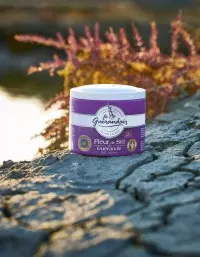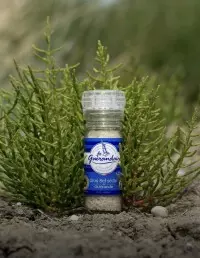
In the south of Brittany, in the heart of raw nature facing the Atlantic, more than 300 men and women join forces to reveal the intense flavours of their marshes and all the riches of their land.
Welcome to the Le Guérandais cooperative.



The salt workers The spirit of the marsh
It's mutual aid, equality, fairness and solidarity that have always shaped the Guérande marshes and that drive the spirit of the cooperative every day.
Guérandais, and proud of it!
Le Guérandais is, of course, a cooperative of salt workers, but it's also passionate employees, partner chefs and a whole community organized around the marshes who uphold our exacting standards and share our values.
Le Guérandais is also the heritage of strong values around the preservation and love of a unique, rich and intensely alive territory.





Our intense products from ocean to plate
Fleur de Sel, fine salt, coarse salt, flavored salt...
Le Guérandais products, 100% natural, sublimate all cuisines and naturally awaken all dishes.






A cooperative born to protect its territory
Salt has been part of the history of the Guérande peninsula for over 2,000 years. It has shaped its landscape, shaped its history and developed its economy.
But doomed to disappear in the 1980s, Guérande's salt marshes owe their renaissance to the commitment of a handful of salt workers who relied on unity and solidarity to save and develop them.
Immersion in the heart of the marshes
Ready for an immersive visit?
Listen to the language of the marsh Click to immerse yourself in sound










